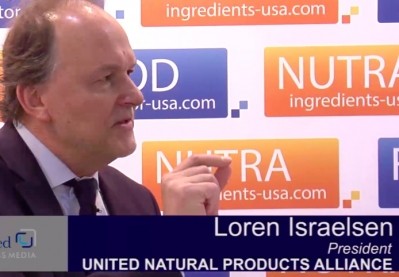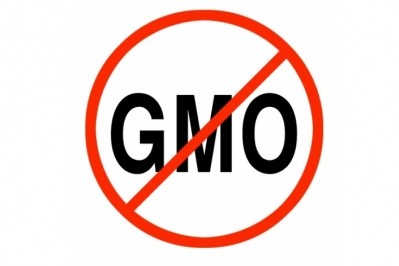Market-driven approach better than laws for GMO labeling, UNPA says

In a statement outlining the Salt Lake City-based trade organization's position, which it announced today, UNPA president Loren Israelsen had this to say:
“In principle, we support the expression of citizens in states to drive a non-GMO agenda, with the understanding that if a number of state labeling initiatives are successful, it could create a complicated regulatory problem for well-intended companies that want to comply.
“We believe that a consumer-driven market solution is the most efficient way to address the GMO-labeling issue, whether it manifests as a non-GMO or contains-GMO label structure,” Israelsen said.
Market advantage?
The position UNPA advocates is similar to the one that exists at the moment for organic labeling. Companies that choose to go through the USDA’s organic certification procedure can use an organic claim on their labels, and seek those consumers for whom organic products are a priority.
UNPA’s position aligns it with other industry thought leaders who have put forth the idea that if consumers are as ardent about their right to choose as advocates for mandatory GMO labeling claim, then proactively labeling products should provide a marketing advantage for those companies willing to find sources of non GMO ingredients. Indeed, this seems already to be happening on one level, as the use of the Non-GMO Project Verified certification on products is the fastest growing certification of its type in the food and dietary supplement industry. And in June, the Non-GMO Project Verified label received approval of a non-GMO label claim for meat and liquid egg products from the Food Safety and Inspection Service, a branch of the U.S. Department of Agriculture that regulates such products, the first government-approved GMO label claim.
Legislative approaches
Currently there are a number of GMO labeling laws making their way through state legistatures, and in April a national GMO labeling bill was introduced by Sen. Barbara Boxer, D-CA and Rep. Peter DeFazio, D-OR. The bill stood little chance of passage on this first introduction, but is a bellwether of the growing pressure on the issue.
The Food and Drug Administration could in theory move on its own to make a rule regarding GMO labeling. But back in the days of the first genetically modified food to reach market—Calgene’s Flavr Savr tomato—the agency ruled that GMOs are not substantially different from conventional foods as far as health and safety are concerned and so did not need to be labeled as such. Israelsen said the agency is unlikely to reverse this position.
While not advocating for a patchwork quilt of different state laws on the issue, UNPA said in its statement that state initiatives, such as Washington's I522, which will be on the ballot in November, are important and should be supported by industry to help prompt interest and advancement of a commercial process that will drive acceptable labeling protocols for impacted industries.
Nascent market-driven approaches
The organization said this growing interest will help promote market-based models, such as the recent solution by Whole Foods Market. The retail chain pledged that all products containing GMO-based ingredients in its 350 stores would require labeling by 2018. Other retail and restaurant operations are following suit, including the nearly 1,500-outlet Chipotle Mexican Grill, which has a goal to eliminate GMO-based foods altogether. The Trader Joe's food chain was out ahead on this issue, having eliminated GMOs from its product inventory in 2001. At the Institute of Food Technologists trade show last week in Chicago, a number of sources said that demand for Whole Foods- and Trader Joe's-compliant ingredients is rapidly rising in the marketplace.
“These are all solid examples of the marketplace finding viable solutions to this issue, and many more thoughtful initiatives are likely to surface,” Israelsen said.










